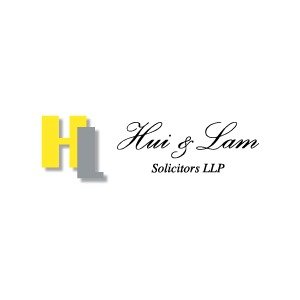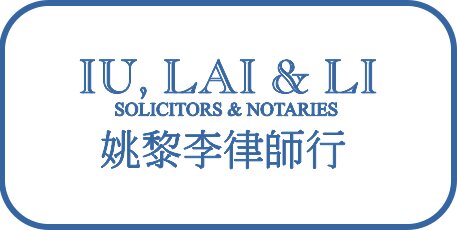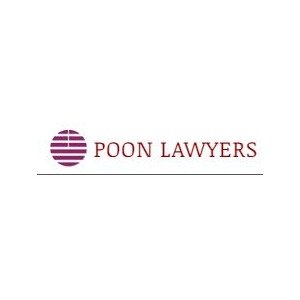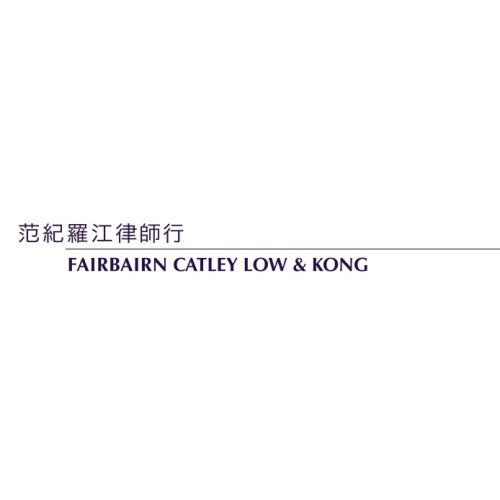Best Real Estate Lawyers in Hong Kong
Share your needs with us, get contacted by law firms.
Free. Takes 2 min.
Free Guide to Hiring a Real Estate Lawyer
Or refine your search by selecting a city:
List of the best lawyers in Hong Kong
About Real Estate Law in Hong Kong
Real estate law in Hong Kong governs a wide range of property-related issues, including property transactions, leases, financing, development, and zoning. As one of the world's most densely populated cities, with a highly competitive real estate market, Hong Kong has a complex set of regulations to manage property law effectively. The jurisdiction balances a traditional English legal framework with local modifications, making the market both compelling and challenging for investors and property owners.
Why You May Need a Lawyer
If you're engaging in real estate transactions in Hong Kong, there are several situations where you may need the expertise of a lawyer:
- Purchasing or selling property: Lawyers ensure compliance with statutory requirements and help mitigate risks during these transactions.
- Lease agreements: Both tenants and landlords may need legal advice to draft, review, or resolve disputes over lease terms.
- Real estate development: Legal expertise is required to navigate the regulatory landscape, obtain necessary permits, and handle contracts with contractors and subcontractors.
- Property inheritance: Legal assistance is crucial for managing estate succession issues and understanding rights and obligations.
- Mortgage and financing matters: Lawyers can provide guidance on financing arrangements, including mortgage terms and lender negotiations.
Local Laws Overview
Several key aspects of local laws affect real estate in Hong Kong:
- Land Registration Ordinance: Establishes a system for the registration of deeds, ensuring that property records are kept up to date.
- Stamp Duty Ordinance: Imposes duties on documents related to property transactions, and it's crucial to understand the rates and exemptions available.
- Building Ordinance: Regulates the construction and safety standards of buildings, ensuring they meet legal and safety requirements.
- Land (Compulsory Sale for Redevelopment) Ordinance: Facilitates the redevelopment of property by allowing for compulsory sales under certain conditions.
- Residential Properties (First-hand Sales) Ordinance: Enhances transparency and consumer protection in the sale of new residential properties.
Frequently Asked Questions
What is the process for buying property in Hong Kong?
The process includes finding a property, negotiating the price, signing a preliminary agreement, paying a deposit, obtaining financing, signing the formal sale and purchase agreement, and completing the transaction.
Are there restrictions for non-residents purchasing property?
There are no restrictions for non-residents purchasing property in Hong Kong; however, non-resident buyers should be aware of the buyer’s stamp duty, which applies to them.
How is property tax calculated in Hong Kong?
Property tax is charged on the owner of any land or buildings in Hong Kong, based on a standard rate applied to the property's annual rental value.
What should be included in a lease agreement?
A lease agreement should cover the terms of the tenancy, rent amount, deposit details, responsibilities for maintenance, termination clauses, and other pertinent conditions.
Can I terminate a lease early?
Termination terms should be included in the lease agreement. Early termination may require mutual consent or be subject to penalty clauses as specified in the contract.
What are the implications of not registering a property transaction?
If a property transaction is not properly registered, it may affect the priority of ownership and expose parties to legal disputes.
How is stamp duty applied in property transactions?
Stamp duty is a tax levied on property transactions, and rates can vary depending on factors like the sale price and the nature of the property (residential or commercial).
What is a mortgage deed?
A mortgage deed is a legal document that secures a loan by providing the lender the right to the property if the borrower defaults on the payment.
What legal actions can be taken in the case of property disputes?
In property disputes, parties can seek mediation, arbitration, or bring the case to court to resolve conflicts legally.
What is the role of a conveyancing solicitor?
A conveyancing solicitor manages the legal aspects of property transactions, ensuring the property's transfer is legally binding and all regulatory requirements are met.
Additional Resources
For those seeking further information or assistance in Hong Kong's real estate realm, consider these resources:
- Land Registry: Provides access to land and property records.
- Hong Kong Legal Information Institute: Offers legal information and case law.
- The Law Society of Hong Kong: A resource for finding legal professionals specializing in real estate.
- Hong Kong Monetary Authority: Information on mortgage loans and financing.
- Consumer Council: Guidance and advice on consumer rights, including property purchases.
Next Steps
If you need legal assistance in real estate matters, consider the following steps:
- Research and identify qualified real estate lawyers in Hong Kong.
- Gather all pertinent documents and information related to your real estate matter.
- Schedule consultations with potential lawyers to discuss your needs and evaluate their experience and fees.
- Choose a lawyer who you trust and feel comfortable working with.
- Work closely with your chosen legal representative to effectively address your real estate concerns.
Lawzana helps you find the best lawyers and law firms in Hong Kong through a curated and pre-screened list of qualified legal professionals. Our platform offers rankings and detailed profiles of attorneys and law firms, allowing you to compare based on practice areas, including Real Estate, experience, and client feedback.
Each profile includes a description of the firm's areas of practice, client reviews, team members and partners, year of establishment, spoken languages, office locations, contact information, social media presence, and any published articles or resources. Most firms on our platform speak English and are experienced in both local and international legal matters.
Get a quote from top-rated law firms in Hong Kong — quickly, securely, and without unnecessary hassle.
Disclaimer:
The information provided on this page is for general informational purposes only and does not constitute legal advice. While we strive to ensure the accuracy and relevance of the content, legal information may change over time, and interpretations of the law can vary. You should always consult with a qualified legal professional for advice specific to your situation.
We disclaim all liability for actions taken or not taken based on the content of this page. If you believe any information is incorrect or outdated, please contact us, and we will review and update it where appropriate.
Browse real estate law firms by service in Hong Kong
Hong Kong Attorneys in related practice areas.
Browse real estate law firms by city in Hong Kong
Refine your search by selecting a city.
















